All Stories
-
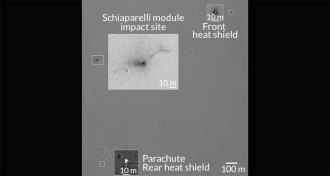 Planetary Science
Planetary ScienceMars lander debris spotted
The Mars Reconnaissance Orbiter imaged the impact site of the Schiaparelli Mars lander, missing in action since its October 19 descent.
-
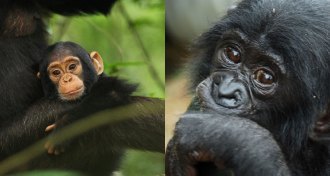 Genetics
GeneticsAncient hookups gave chimps a smidge of bonobo DNA
Genetic evidence suggests bonobos and chimpanzees interbred after becoming separate species.
-
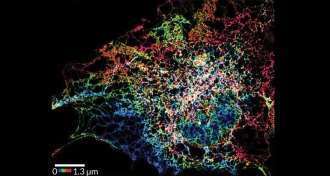 Life
LifeScientists need to redraw picture of cell’s biggest organelle
A close-up view of the cell’s endoplasmic reticulum reveals a different structure.
-
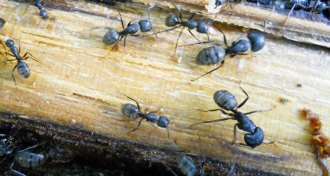 Climate
ClimateClimate change shifts how long ants hang on to coveted real estate
Simulated climate warming reveals a new pattern in turnover of ant nests.
By Susan Milius -
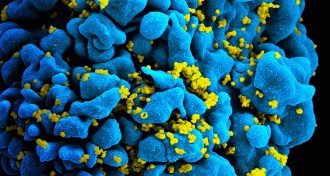 Genetics
GeneticsHIV came to NYC at least a decade before virus ID’d
DNA analysis of early viral strains tracks U.S. debut to early ’70s
-
 Quantum Physics
Quantum Physics‘Time crystal’ created in lab
A chain of ions creates a crystal that repeats in time instead of in space.
-
 Health & Medicine
Health & MedicineTraining for parents may lessen some autism symptoms in kids
Training parents may help with some autism symptoms, a new study suggests.
-
 Animals
AnimalsWith climate change, grizzly bears may hibernate less
New research shows that food availability and weather are driving when grizzly bears enter and exit their dens for hibernation.
-
 Climate
ClimateWanted: New ways to chill air conditioners, fridges
A new amendment to the Montreal Protocol will phase out potent greenhouse gases currently used in air conditioners and refrigerators, prompting a hunt for eco-friendly alternatives.
-
 Astronomy
AstronomyUranus moon count: 27 and rising
Two more moons might be lurking around Uranus, causing material in the planet’s rings to clump up, Voyager 2 data suggest.
-
 Planetary Science
Planetary ScienceTwo unseen moons may circle Uranus
Two more moons might be lurking around Uranus, causing material in the planet’s rings to clump up, Voyager 2 data suggest.
-
 Particle Physics
Particle PhysicsLatest dark matter searches leave scientists empty-handed
As the most popular candidates for dark matter fail to show up in detectors, scientists are broadening the search.